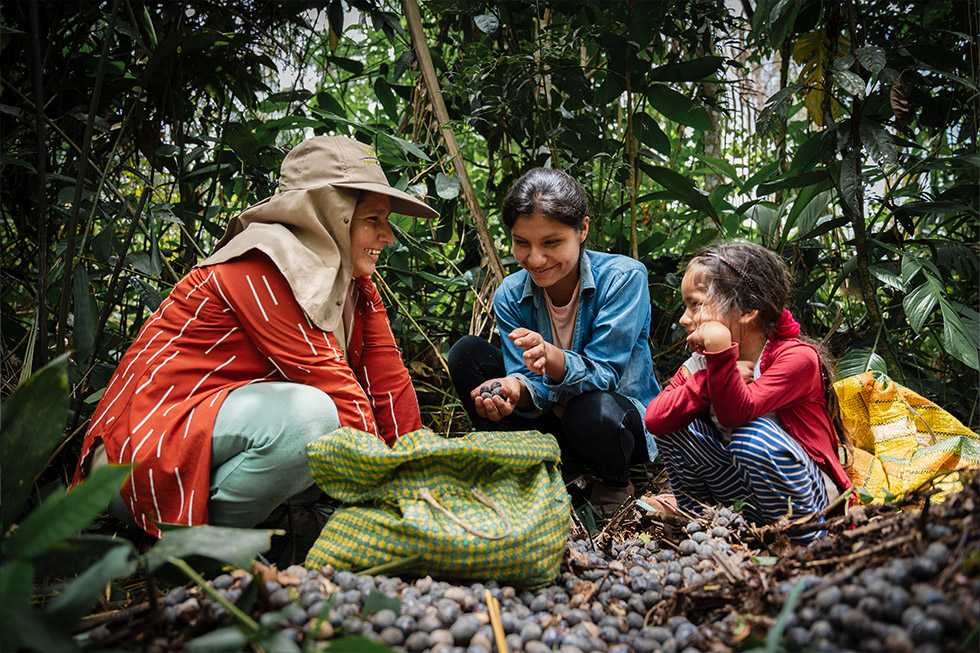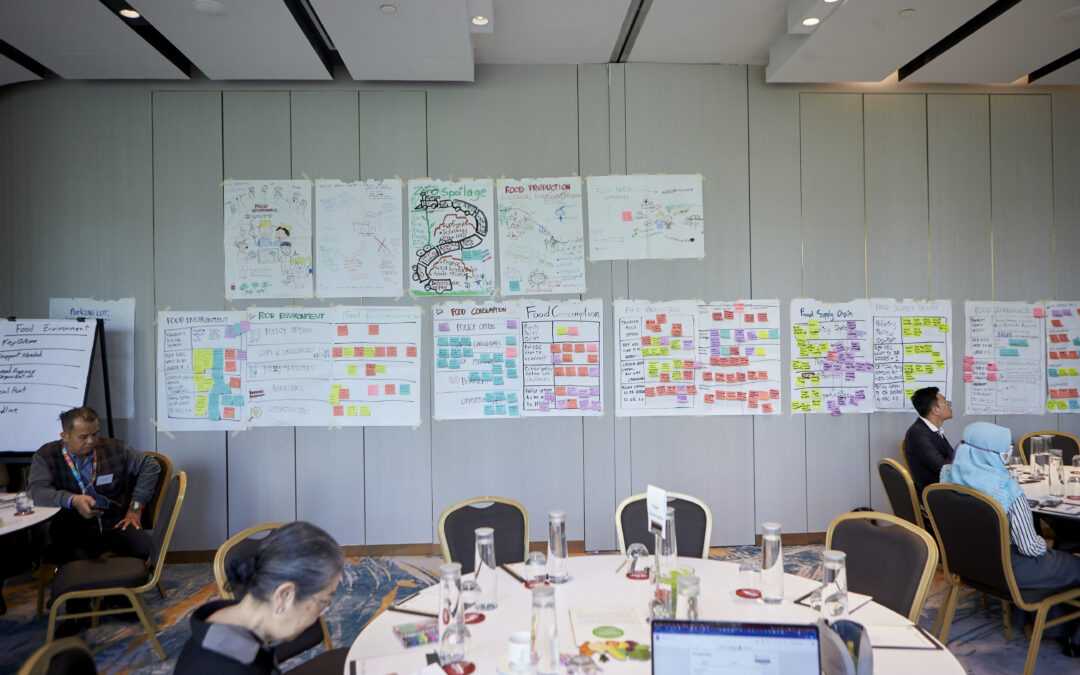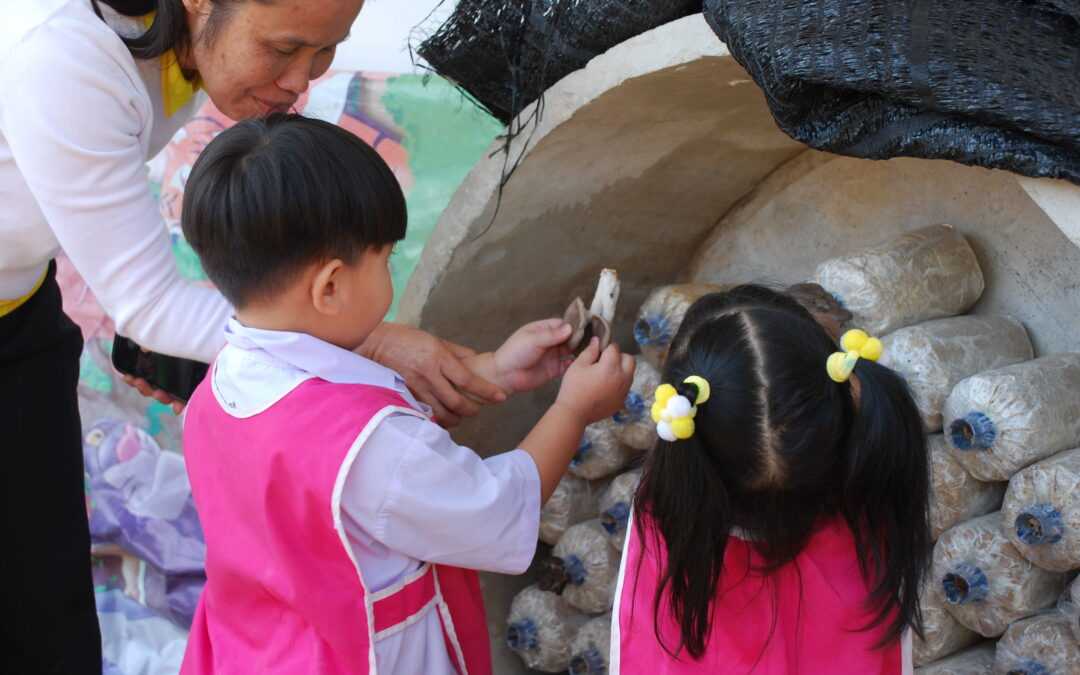FUTURE FOOD TOGETHER
Transforming Food Systems in the Global South
What is FFT?
Future Food Together is a response to the urgent change that is needed in the way we consume and produce food. The WWF initiative presents a different vision for food systems and rallies stakeholders in the Global South around the need for transformation.
Read moreWho is behind FFT?
We are a network of dedicated WWF project teams that engage, consult, facilitate, connect and nudge to drive locally-informed, end-to-end food solutions in the Global South.
Our networkWhere we Work
With a focus on the Global South, Future Food Together has established six projects across two continents – Asia and South America. Each project addresses a range of food systems challenges specific to the national context by promoting and integrating SCP practices throughout the value chain.
We work along the entire value chain, from farm to fork, starting with switching to organic production in model sites, to setting up local markets and cooperation with retailers bringing the products to the cities.
We aimed to shift the Indonesian domestic market for palm oil to sustainability. Retailers and other businesses were convinced to shift their sourced palm oil to certified sustainable products. Our work in Indonesia ended in 2021.
We focus on the support of the tourism sector on the path to sustainability. The team has worked intensively with selected restaurants and hotels to help shift their businesses to sustainable practices. Our project component in the country ended in 2021.
We are working with selected associations of beef and dairy producers and helping them to live up to their commitments to deforestation-free supply chains. In cooperation with retailers, hotspots of fresh produce food waste are analysed and remedied.
Working with farming associations and individual farmers, agricultural practices are shifted to organic production, coupled with setting up marketing channels to local markets and supermarkets in the cities where „sustainable shelves“ are set up enabling consumers to make informed consumption choices.
We work with key value chain actors such as rural communities, retailers, consumers and government bodies to transform agri-food systems with a holistic approach, implementing solutions along the supply chain from production to consumption.

The environmental impact of food
%
Between 21 and 37 % of total global greenhouse gas emissions are traceable to our food.
%
Agricultural practices account for 70 % of biodiversity loss
%
Agricultural practices account for 80% of global deforestation
Where we’re at
Agriculture is practiced on more than one-third of the Earth’s habitable land. Nearly half of the world’s population lives in rural areas and depends on agriculture for their livelihood.
Between 21 and 37% of total global greenhouse gas emissions are traceable to our food. The primary drivers of these GHG emissions are deforestation, land use change and land management activities. Globally, agricultural practices account for 70% of biodiversity loss. At the same time, global food systems are leaving 750 million people (1 in 10 people) affected by severe food insecurity, and around 2 billion people without regular access to safe and nutritious food. There is an urgent need to build resilient food systems that are healthy for people and the planet.
The challenge, therefore, is to fundamentally reorient our relation with food and with nature. There is growing consensus on the need for solutions that take on a more holistic approach, one that considers all the interrelated elements and actors in the food system, from production to consumption and even beyond.
How we take action
- We work with local experts to develop and implement in-country solutions along the entire value chain, by translating research and expertise into tangible solutions that are actionable and scalable.
- We build on tailored bottom-up solutions instead of simply following general frameworks in a top-down manner.
- We empower knowledge exchange and participation to facilitate insight sharing between countries in the Global South.
- Future Food Together rallies stakeholders at all levels, facilitating engagement and cooperation within international frameworks, as well as with governments, businesses and consumers.
For Governments
For policymakers, this means that integrated, coherent and cross-sectoral policies must be developed and implemented with urgency.
For GovernmentsFor Businesses
For companies, this means aligning their business strategies with both the Sustainable Development Goals and planetary boundaries.
For BusinessesFor Consumers
For each of us, this means making more informed choices and advocating for healthier and more sustainable lifestyles.
For Consumers
Project News

Want food systems that benefit people, planet and prosperity? Root them in equity
Our global food systems are ailing. They are not only unsustainable but also inefficient and unjust. A new WWF study shows that inequality lies at the root of today’s food crisis, and that this is not accidental: it is the result of historical processes and political choices – and so, it can be changed

Integrating Food Systems into Climate Action: Lessons from Cambodia and Thailand
Both Cambodia and Thailand have recognized the importance of addressing climate change, but the integration of food systems into their NDCs remains a work in progress. Policymakers in both countries have the power to drive transformative change, but they need the right tools and knowledge to do so.

Thai School Lunch Initiative
How can we weave healthy and sustainable diets into everyday school life and get the young ones excited about good, nutritious food?
